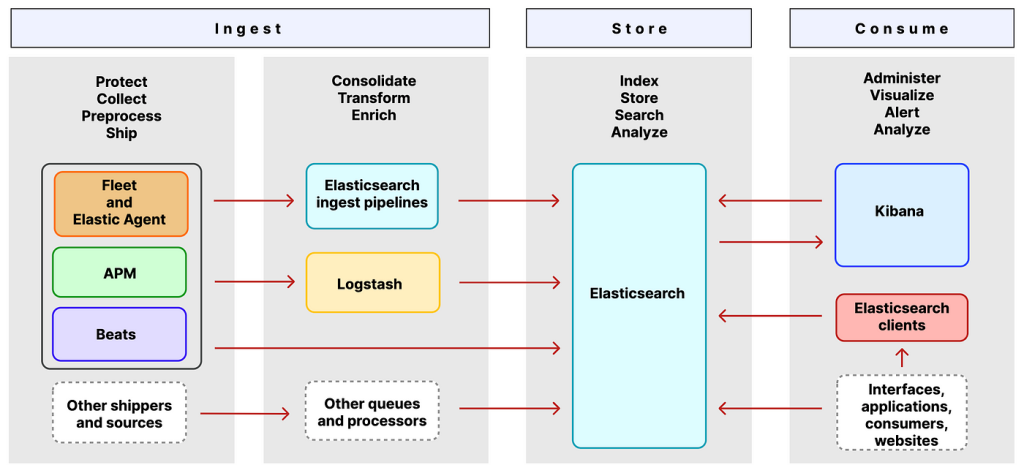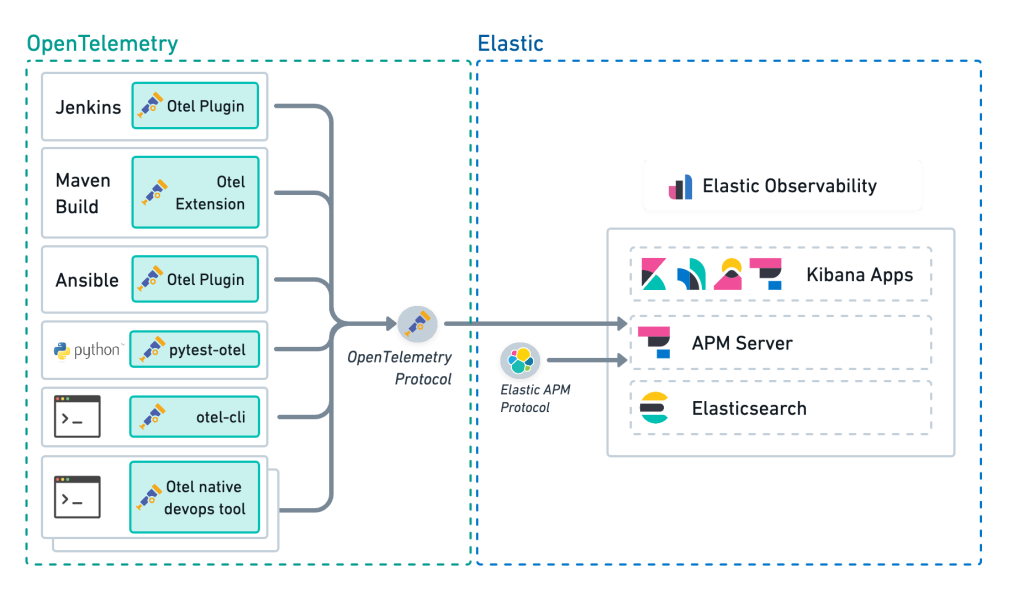What is Elastic?
Elastic is a distributed search and analytics engine known for its role in the Elastic Stack (formerly ELK Stack). Elastic enables powerful data storage, search, and visualization capabilities, making it essential for large-scale data analytics, monitoring, and business intelligence.

Why Elastic is Important?
Elastic is widely used for its fast search capabilities and its ability to handle diverse data in real-time, empowering teams with actionable insights across a range of applications, including log and event data analytics. Mastering Elastic helps professionals improve search accuracy, data visualization, and real-time monitoring, all essential skills for today’s data-driven enterprises.
Course Features
- Comprehensive coverage of Elastic basics to advanced configurations.
- Hands-on labs for applying concepts in real-world scenarios.
- Led by certified trainer Rajesh Kumar, known for his expertise in Elastic Stack.
- Certification upon course completion, recognized by DevOpsSchool.com.
Training Objectives
Participants will learn:
- The fundamentals of Elastic and its core components, including Elasticsearch, Logstash, and Kibana.
- Techniques for data ingestion, search, and real-time analysis.
- How to configure and optimize Elastic environments for various use cases.
- Hands-on experience in visualizing data and creating dashboards with Kibana.

Target Audience
This course is suitable for:
- Data analysts, DevOps engineers, and IT administrators.
- Individuals with a background in data analytics, monitoring, or IT infrastructure.
- Beginners with basic understanding of data handling, as well as experienced professionals.
Training Methodology
This course includes lectures, interactive discussions, and practical labs. Each session includes hands-on exercises that reinforce key concepts, ensuring practical, in-depth understanding.
Training Materials
- Course slides and handouts.
- Online access to video resources and additional reading material.
- Lab workbooks with guided exercises.
Evaluation
- Pre-test and post-test assessments to measure learning progress.
- Participant feedback surveys for program improvement.
- Certification awarded based on successful completion of course requirements.
Certification Program
Participants will receive a “Master Certification in Elastic” from DevOpsSchool.com, recognizing their knowledge and expertise in managing and using Elastic Stack for analytics and monitoring.
Agenda Daywise for Elastic Training
| Day | Topics Covered |
|---|---|
| Day 1 | Introduction to Elastic Stack, Installation, and Elasticsearch Fundamentals |
| Day 2 | Data Ingestion with Logstash, Configuring Pipelines, and Parsing Data |
| Day 3 | Indexing and Searching with Elasticsearch, Optimizing Search, and Managing Clusters |
| Day 4 | Data Visualization with Kibana, Creating Dashboards, and Advanced Visualization Techniques |
| Day 5 | Security Features in Elastic, Performance Tuning, Troubleshooting, and Certification Preparation |
Lab Setup
Guidelines for lab setup include:
- System requirements for Elastic components.
- Instructions for setting up Elasticsearch, Logstash, and Kibana on local or cloud environments.
- Access to sample datasets for practice.
Trainers
Rajesh Kumar, a seasoned expert in data analytics and Elastic Stack, will lead the training. With extensive experience, Rajesh ensures an engaging and informative learning environment.
Videos
FAQ for Elastic Training Course
| Question | Answer |
|---|---|
| What is Elastic, and why is it used? | Elastic is a search and analytics engine used for managing large-scale data and enabling powerful real-time insights. |
| Do I need prior experience with data tools? | Some familiarity with data tools is beneficial, but not mandatory. The course includes foundational concepts. |
| Is Elastic difficult to learn? | With hands-on labs and guided instruction, learning Elastic is approachable for most participants. |
| How does Elastic differ from other search engines? | Elastic excels at handling large-scale, real-time data, particularly for log and event data analytics. |
| Can Elastic Stack be used in cloud environments? | Yes, Elastic is compatible with cloud services, and many companies use it in cloud-based architectures. |
| Will I receive a certification? | Yes, participants will receive a certification from DevOpsSchool.com upon course completion. |
| What kind of projects can I work on post-training? | You can work on data analytics, log monitoring, search optimization, and business intelligence projects. |
| Does the course cover advanced Kibana visualization? | Yes, Day 4 covers advanced Kibana techniques for creating insightful visualizations. |
| How long is the certification valid? | Certification validity is lifetime. |
| Are there specific job roles that benefit from Elastic expertise? | Yes, roles include Data Analyst, DevOps Engineer, and Search Specialist. |
What do aspirants think about our certification?
Participants value the hands-on nature of the Elastic certification and appreciate the career-enhancing insights and practical skills gained, reporting that it provides a solid foundation for data-centric roles.